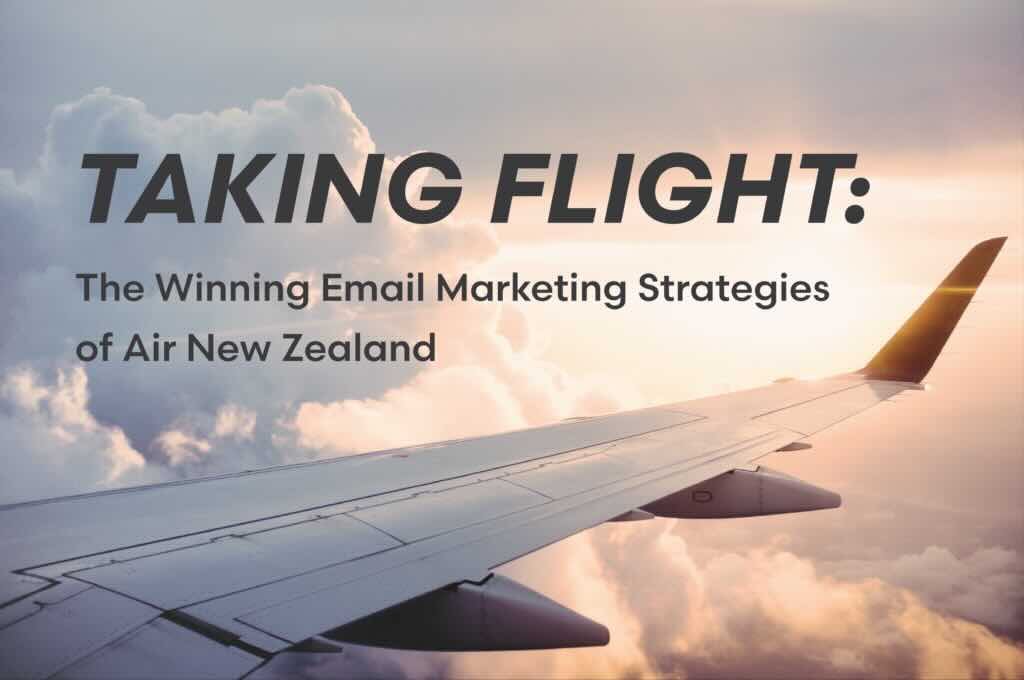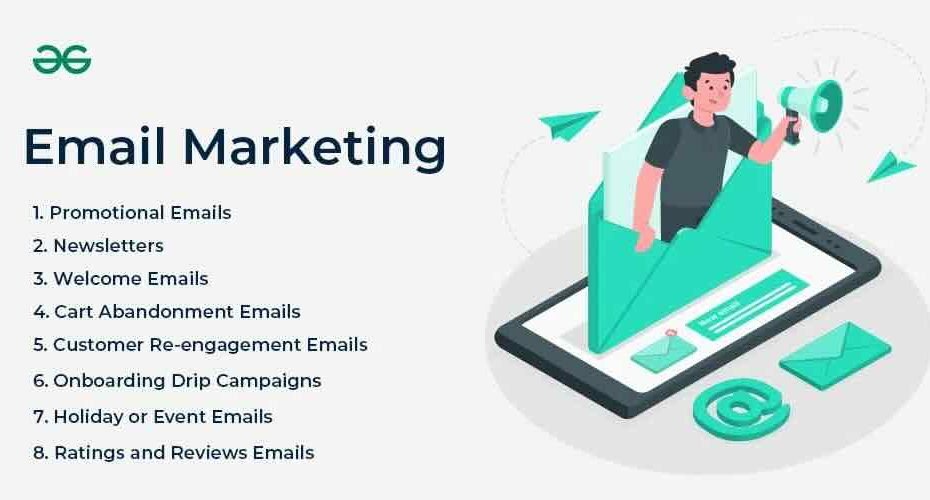Email Direct Marketing (EDM) remains a vital tool for acquiring potential customers and driving sales in the digital marketing landscape. This blog will delve into the importance of email marketing, the roles of email marketers in companies of different sizes, and the latest innovations in the field.
🌟 Why is Email Marketing Still Important?
Despite the widespread use of mobile internet in mainland China, where email is not as commonly used, email remains a prevalent and crucial communication tool in Hong Kong and overseas markets. Data shows that email still accounts for 10.6% of e-commerce traffic, and this figure can be even higher for websites with strong SEO and SEM performance. With a return on investment (ROI) of up to 1:45, email marketing is one of the most cost-effective marketing channels.
Advantages of Email Marketing
- High ROI: Email marketing is renowned for its high ROI. Compared to other marketing channels, email has lower costs but very high conversion rates.
- Wide Reach: Whether for personal or business use, email is a universal communication tool that can broadly cover target audiences.
- Trackability: Email marketing tools allow detailed tracking of open rates, click rates, and conversion rates for each email, optimizing marketing strategies.
- Immediacy: Emails can be delivered instantly to the target audience, making it ideal for urgent messages and promotional activities.
- Versatility: Emails can include text, images, videos, and interactive elements, making information delivery more diverse and engaging.
- Cost-Effective: Compared to traditional direct mail and advertising, email has lower sending costs and is more environmentally friendly.
Functions of Email Marketing
Email is not just a channel for spreading information; it’s also a vital customer relationship management tool. By regularly sending valuable content, you can build trust with customers and enhance brand loyalty. Additionally, email marketing can be used for:
- Promotional Campaigns: Directly drive sales by sending special offers and discounts.
- Content Distribution: Regularly share blog posts, news, and industry insights to increase website traffic.
- Customer Surveys: Collect feedback to improve products and services.
- Event Invitations: Send invitations and reminders for events to increase participation.
- Brand Promotion: Regularly send brand stories and news to enhance brand image and awareness.
- Customer Education: Send emails about product usage and industry knowledge to help customers better understand and use your products.
🌟 Roles of Email Marketers in Different Sized Companies
1. Small Companies
In small companies, email marketers often handle the entire email creation process. They may need to write content, do HTML coding, and manage campaigns using various tools. Due to limited resources, they must have diverse skills to independently complete all aspects from creative to execution. For example, they might need to design email templates, write compelling subject lines and content, and set up automated email workflows.
- Content Creation: Email marketers in small companies typically write and design all email content, including promotional messages, newsletters, and event invitations.
- Data Management: They also need to manage and maintain email subscriber lists, ensuring data accuracy and updates.
- Performance Reporting: Regularly generate and analyze email campaign performance reports to continuously optimize and improve marketing strategies.
2. Medium Companies
Medium companies usually have dedicated marketing operations teams. The roles of email marketers are more specialized, focusing on triggered and segmented emails based on user behavior. For example, sending order confirmation emails after a purchase or recommending products based on browsing history. Email marketers in medium companies often work closely with other departments (such as sales and customer service) to ensure consistency and effectiveness of marketing strategies.
- Marketing Automation: Email marketers in medium companies often use automation tools to send customized emails based on user behavior and lifecycle stages.
- A/B Testing: Optimize email content and send times through A/B testing to find the most effective email performance.
- Cross-Channel Integration: Collaborate with other digital marketing channels (such as social media and websites) to ensure a consistent user experience and brand communication.
3. Large Companies
In large organizations, email marketers are involved in creating customer lifecycle marketing campaigns, ensuring that customized emails cover every stage of the customer journey. These roles typically involve complex funnel marketing and private domain operations, making them highly sought after and well-compensated due to their complexity and impact. For example, they might develop intricate automated email workflows and send highly personalized emails based on user behavior and data analysis.
- Advanced Data Analysis: Use sophisticated analysis tools and techniques to gain deep insights into user behavior and preferences to optimize email content and send strategies.
- Cross-Department Collaboration: Work closely with multiple departments (such as product, sales, and customer support) to ensure the consistency and coordination of email content and strategies.
- Global Strategy: Develop and implement localized email marketing strategies for international markets, considering different cultural and regulatory requirements.
🌟 Innovations in Email Marketing
1. Artificial Intelligence and Machine Learning
AI-driven tools can analyze customer data, predict preferences, automate campaigns, and personalize content at scale. This technology helps optimize email strategies, boosting engagement and conversion rates. For example, AI can automatically recommend relevant products and services based on users’ browsing history and purchase behavior.
- Predictive Analytics: Use machine learning algorithms to predict customer behavior, allowing for proactive planning and adjustment of marketing strategies.
- Smart Segmentation: Dynamically group customers based on behavior and preferences to send more relevant email content.
- Auto-Optimization: Continuously learn and optimize algorithms to automatically adjust email sending times, frequencies, and content for optimal results.
2. Hyper-Personalization
Utilize customer data to create highly personalized emails, ensuring messages are relevant to each recipient, thus increasing the likelihood of engagement. Personalized email content can significantly improve open and click-through rates, enhancing user loyalty. For example, dynamic content blocks can display different product recommendations and promotional information based on users’ geographic locations, purchase history, and behavior data.
- Dynamic Content Generation: Automatically generate personalized email content based on user data, providing a unique user experience.
- Behavior-Triggered Emails: Send real-time relevant email notifications and recommendations based on user behavior on the website.
- Personalized Recommendations: Use recommendation algorithms to offer users the products and content they are most interested in, improving conversion rates.
3. Interactive Emails
Incorporate interactive elements such as videos, GIFs, and clickable features to make emails more engaging and memorable. This trend focuses on captivating audiences through visual storytelling, enhancing user interaction and engagement. For example, embed short videos in emails to showcase new product usage methods or use GIF animations to highlight unique selling points of products.
- Video Emails: Embed video content in emails to enhance message delivery and user engagement.
- Interactive Content: Increase user interactivity and participation by embedding forms, surveys, and mini-games in emails.
- Animated Effects: Use animations and transition effects to make email content more vivid and engaging.
4. Sustainability
With growing environmental concerns, email marketing is shifting towards more sustainable practices. This includes reducing email file sizes, sending fewer but more relevant emails to reduce carbon footprint. For example, using simple and efficient email designs reduces the use of images and attachments while ensuring high relevance and practicality of email content.
- Green Design: Adopt eco-friendly materials and design concepts to reduce resource consumption and environmental impact.
- Precision Targeting: Reduce unnecessary email sends by fine-grained user segmentation and behavior analysis, enhancing marketing efficiency.
- Promote Environmental Responsibility: Convey the brand’s environmental philosophy and practices in emails, enhancing user identification and loyalty.
5. Enhanced Privacy and Security
With increasingly stringent data privacy regulations, maintaining subscriber trust is crucial. Companies must be transparent about data usage, obtain proper consent, and implement robust security measures to protect user information. For example, complying with regulations like GDPR and CCPA ensures users can manage and delete their personal data at any time.
- Data Encryption: Use advanced encryption technologies to ensure user data security during transmission and storage.
- Transparent Privacy Policies: Clearly inform users about the purposes and methods of data collection and use, enhancing transparency and trust.
- User Permission Management: Provide users with easy-to-use permission management tools, allowing them to control their data and privacy settings.
🌟 Case Studies of Successful Email Marketing in New Zealand
1. Air New Zealand

Campaign: Personalised Travel Recommendations
Strategy: Air New Zealand uses customer data to send personalized travel recommendations and promotions. By analyzing past travel behavior and preferences, they can offer tailored travel deals and experiences.
Results: This approach has significantly increased email open rates and click-through rates, leading to higher engagement and conversion rates. Personalized emails also enhance customer loyalty by providing relevant and timely offers.
2. The Warehouse Group
Campaign: Seasonal Sales Promotions
Strategy: The Warehouse Group leverages email marketing to promote seasonal sales and exclusive discounts. They use segmentation to target different customer groups with specific offers, ensuring relevance and boosting sales.
Results: This targeted approach has led to increased sales during promotional periods and improved customer satisfaction. The use of personalised discount codes and exclusive offers has also helped in building a loyal customer base.
3. Untouched World

Campaign: Sustainability and Eco-friendly Initiatives
Strategy: Untouched World, a sustainable fashion brand, uses email marketing to communicate their commitment to sustainability. They share stories about their eco-friendly practices, new sustainable product launches, and exclusive offers for eco-conscious customers.
Results: This strategy has resonated well with their audience, leading to higher engagement rates and a stronger brand connection. The focus on sustainability has attracted a dedicated customer base that values eco-friendly products and practices.
4. Trade Me
Campaign: Behavioral Triggered Emails
Strategy: Trade Me, New Zealand’s largest online marketplace, uses behavioral triggered emails to engage users based on their actions on the platform. This includes emails for abandoned carts, price drop alerts, and personalized product recommendations.
Results: These automated, behavior-based emails have significantly increased user engagement and conversion rates. By providing timely and relevant information, Trade Me has enhanced the overall user experience and driven more transactions on their platform.
5. Countdown
Campaign: Weekly Specials and Recipes
Strategy: Countdown, a leading supermarket chain, uses email marketing to share weekly specials and recipe ideas. They segment their audience based on purchasing behavior to provide personalized offers and meal suggestions.
Results: This approach has improved customer engagement and boosted sales of promoted products. The integration of recipes with product promotions encourages customers to try new items and increases basket size.
Conclusion
Email marketing is a worthy investment, offering high ROI and a lifelong career path. By continuously learning and adapting to new technologies and trends, email marketers can achieve sustained success in this rapidly evolving industry. Whether for small, medium, or large companies, email marketing plays a crucial role in acquiring potential customers and driving sales.
As a professional with years of experience in the digital marketing industry, I have witnessed the transformation and development of email marketing. I hope this blog provides you with comprehensive email marketing knowledge, helping you achieve greater success in the digital marketing field. If you have any questions about specific certifications or tools, feel free to contact me.
